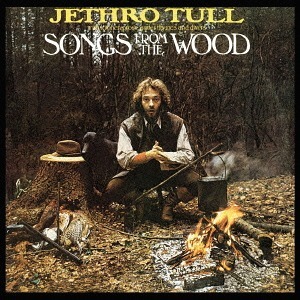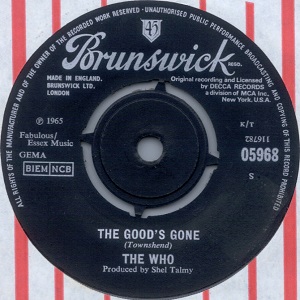
Led Zeppelin, sometimes referred to as Led Zeppelin I, is the debut studio album by English rock band Led Zeppelin. It was released on 12 January 1969 in the United States and on 31 March in the United Kingdom by Atlantic Records.
Nothing Records was an American record label specializing in industrial rock and electronic music, founded by John Malm Jr. and Trent Reznor in 1992. It is considered an example of a vanity label, where an artist is able to run a label with some small degree of independence within a larger parent company, in this case the larger company being Interscope Records.
Dub is an electronic musical style that grew out of reggae in the late 1960s and early 1970s. It is commonly considered a subgenre of reggae, though it has developed to extend beyond that style. Generally, dub consists of remixes of existing recordings created by significantly manipulating the original, usually through the removal of vocal parts, the application of studio effects such as echo and reverb, emphasis of the rhythm section, and the occasional dubbing of vocal or instrumental snippets from the original version or other works.

Meddle is the sixth studio album by English rock band Pink Floyd, released by Harvest Records. The album was produced between the band's touring commitments, from January to August 1971 at a series of locations around London, including EMI Studios and Morgan Studios.

"Shine On You Crazy Diamond" is a nine-part Pink Floyd composition written by David Gilmour, Roger Waters, and Richard Wright. It appeared on Pink Floyd's 1975 concept album Wish You Were Here. The song is written about and dedicated to Syd Barrett, who left the band in 1968 because of deteriorating mental health.

The Wall of Sound is a music production formula developed by American record producer Phil Spector at Gold Star Studios, in the 1960s, with assistance from engineer Larry Levine and the conglomerate of session musicians later known as "the Wrecking Crew". The intention was to exploit the possibilities of studio recording to create an unusually dense orchestral aesthetic that came across well through radios and jukeboxes of the era. Spector explained in 1964: "I was looking for a sound, a sound so strong that if the material was not the greatest, the sound would carry the record. It was a case of augmenting, augmenting. It all fit together like a jigsaw."
"Echoes" is a song by the rock band Pink Floyd, and the sixth and last track on their 1971 album Meddle. It is 23 and a half minutes long and takes up the entire second side of the original LP. The track evolved from a variety of different musical themes and ideas, including instrumental passages and studio effects, resulting in the side-long piece. The music was written by the group, while Roger Waters' lyrics addressed themes of human communication and empathy, which he returned to in later work.

More is the third studio album and first soundtrack album by English rock band Pink Floyd. It was released on 13 June 1969 in the United Kingdom by EMI Columbia and on 9 August 1969 in the United States by Tower Records. The soundtrack is for the film of the same name, which was primarily filmed on location on Ibiza and was the directorial debut of Barbet Schroeder. It was the band's first album without former leader Syd Barrett.

Songs from the Wood is the tenth studio album by British progressive rock band Jethro Tull, released on 11 February 1977 by Chrysalis Records. The album is considered to be the first of three folk rock albums released by the band at the end of the 1970s: Songs from the Wood,Heavy Horses (1978) and Stormwatch (1979).

Meat Beat Manifesto, often shortened as Meat Beat, Manifesto or MBM, is an electronic music group originally consisting of Jack Dangers and Jonny Stephens that was formed in 1987 in Swindon, United Kingdom. The band, fronted by Dangers, has proven versatile over the years, experimenting with techno, breakbeat, industrial, dub and jazz fusion while touring the world and influencing major acts such as Nine Inch Nails, the Chemical Brothers and the Prodigy. Some of the band's earlier work has been credited with influencing the rise of the trip hop, big beat, and drum and bass genres.

Hot Space is the tenth studio album by the British rock band Queen. It was released on 4 May 1982 by EMI Records in the UK and by Elektra Records in the US. Marking a notable shift in direction from their earlier work, they employed many elements of disco, funk, rhythm and blues, dance and pop music on the album. This made the album less popular with fans who preferred the traditional rock style they had come to associate with the band. Queen's decision to record a dance-oriented album germinated with the massive success of their 1980 hit "Another One Bites the Dust" in the US.

Pushing the Senses is the fifth studio album by Welsh rock band Feeder. It was released on Echo, Liberation Music and PIAS on 31 January 2005 in the United Kingdom, Australia, New Zealand and Europe, while being released on Pony Canyon in Japan on 10 February 2005. Despite mixed reviews, the album was a commercial success, in which it was a top five album in Feeder's native United Kingdom, and its lead single "Tumble and Fall" was a top five single. This made the album Feeder's most successful in terms of peak chart position, but did not experience the same chart longevity as presuccessor Comfort in Sound, which spent 36 weeks on the UK top 75 chart in comparison to the 15 weeks spent by Pushing the Senses.

"Interstellar Overdrive" is an instrumental composition written and performed by Pink Floyd. The song was written in 1966 and is on their 1967 debut album, The Piper at the Gates of Dawn, clocking in at almost ten minutes in length.
Jack Dangers is an English electronic musician, DJ, producer, and remixer best known for his work as the primary member of Meat Beat Manifesto. He lives in San Francisco.

Storm the Studio is the debut album by English electronic music group Meat Beat Manifesto, released on 20 February 1989 by Sweatbox Records in the United Kingdom and later that year by Wax Trax! in the United States. Recorded in three recording studios, the album contains four compositions, each split into separate parts, that mostly originated as twelve-inch singles the band released in 1988. The record's inventive musical style features elements of industrial music, electro, dub, noise rock and hip hop music, and incorporates breakbeats, noise and sporadic rap vocals. The group also incorporated heavy usage of sampling in a fashion they compared to pop art. Television was a further influence on the record, and numerous items of television dialogue appear throughout Storm the Studio as samples.

RUOK? is a 2002 album by the British industrial techno group Meat Beat Manifesto. Some editions included the mini Enhanced CD Free Piece Suite. The album was recorded at Tape Lab Studios in California and was mastered at The Exchange in London. It features the rare EMS Synthi 100 synthesizer.

One World is the seventh studio album by Scottish guitarist and singer John Martyn, released in November 1977 by Island Records. The album, produced by Island owner Chris Blackwell at his Berkshire farm, was recorded with myriad musicians, including Steve Winwood, Danny Thompson, John Stevens, Hansford Rowe and Rico. The album followed a sabbatical where, at Blackwell's invite, Martyn holidayed in Jamaica in 1976 with his family, having become disillusioned with the music business. The trip helped revitalise his interest in music.

...In Dub is a dub remix album by Meat Beat Manifesto. ...In Dub is mostly remixes of RUOK? material with select songs featuring vocals by DJ Collage; however, there are some original tracks. The album was issued as both a CD and a DVD which contains minimalistic music videos. Both versions also have separate track listings.

Autoimmune is an album by Meat Beat Manifesto. Though the album was originally announced as a 20-track double-CD release, frontman Jack Dangers decided to shorten the album to a single disc with different track listings between the US and European releases. Stylistically, it steps up the pace from other recent Meat Beat Manifesto albums, using elements of dub, hip-hop, industrial, breakbeat and more, and it is regarded as a partial return to the early industrial sound of the band in the late 1980s. The album has also been described as Dangers' take on dubstep, though he has stated that Meat Beat Manifesto has always utilized the underlying concepts of that particular genre. Autoimmune is the first Meat Beat Manifesto album with Danger's vocals since Actual Sounds + Voices in 1998; he appears on the track "Solid Waste". The album cover continues the checkerboard/grid theme also seen on earlier Meat Beat Manifesto albums Actual Sounds + Voices, RUOK? and the Off-Centre EP. Most of the remaining songs that were excised from the original double-disc concept were later released on an EP available only on the Autoimmune tour.

"The Good's Gone" is a song by English rock band the Who, written by their guitarist Pete Townshend. Initially recorded and sequenced as the third track of their debut My Generation in December 1965, it was released as the B-side to "La-La-La-Lies" in November 1966. Heavily inspired by Ray Davies song "See My Friends", Townshend wrote the track with blues in mind.
















